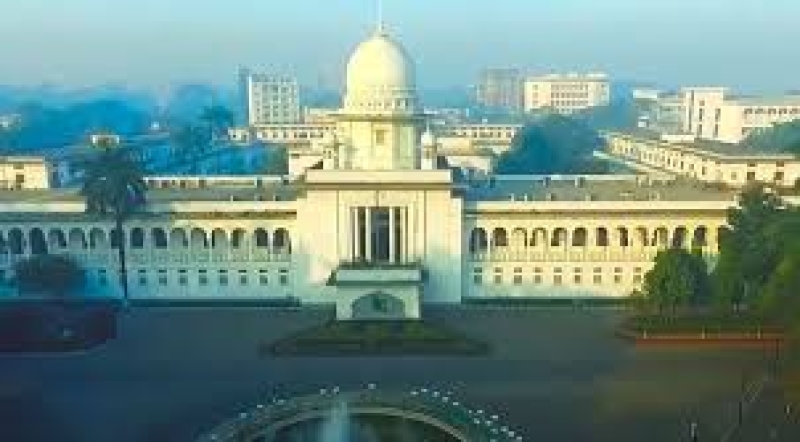- Remittance Inflow Surges 45% to $3.17bn in January |
- Militant Attacks Kill 33 in Balochistan; 92 Assailants Dead |
- Power generation at Payra Thermal Power Plant 1st unit starts after a month |
- Irregularities, injustice will no longer be accepted in politics: Jamaat Ameer |
- 2 arrested in Jhenaidah for allegedly selling madrasa student |
HC Restores SC’s Authority Over Judiciary

The High Court has declared parts of Article 116 of the Constitution illegal and void, effectively restoring the Supreme Court’s authority over the control, posting, and promotion of judges in the subordinate judiciary.
The verdict, delivered on Tuesday by a bench comprising Justice Ahmed Sohel and Justice Debasish Roy Chowdhury, also directed the government to establish a separate secretariat for the Supreme Court within three months.
Restoring judicial independence
With this ruling, the power to transfer, promote, and discipline judges of lower courts returns to the Supreme Court, reinforcing the principle of judicial independence. Legal experts say the decision removes barriers to creating an autonomous administrative structure for the apex court through its own secretariat.
Article 116 of the Constitution currently states that “the control (including the power of posting, promotion and grant of leave) and discipline of persons employed in the judicial service and magistrates exercising judicial functions shall vest in the President and shall be exercised by him in consultation with the Supreme Court.”
The High Court found this provision inconsistent with the original spirit of the Constitution and contrary to the doctrine of separation of powers.
A long constitutional journey
Under the original 1972 Constitution, the Supreme Court had sole authority over the judicial service and magistrates. However, the Fourth Amendment in 1974 shifted this control to the President, raising concerns about executive interference in the judiciary.
The issue resurfaced over the decades through multiple constitutional amendments and court rulings. In 2011, the Fifteenth Amendment reinstated the President’s authority “in consultation with the Supreme Court,” despite criticism that this undermined judicial independence.
Tuesday’s verdict, therefore, is seen as a historic step towards restoring the judiciary’s constitutional autonomy.
Next steps
The High Court’s directive to establish a Supreme Court secretariat within three months is expected to give the apex court greater administrative capacity and independence in managing judicial affairs.
The ruling comes amid long-standing debates about ensuring separation of powers and strengthening democratic institutions in Bangladesh. Legal scholars believe the judgment could pave the way for reforms that better insulate the judiciary from political influence, reinforcing the rule of law.

